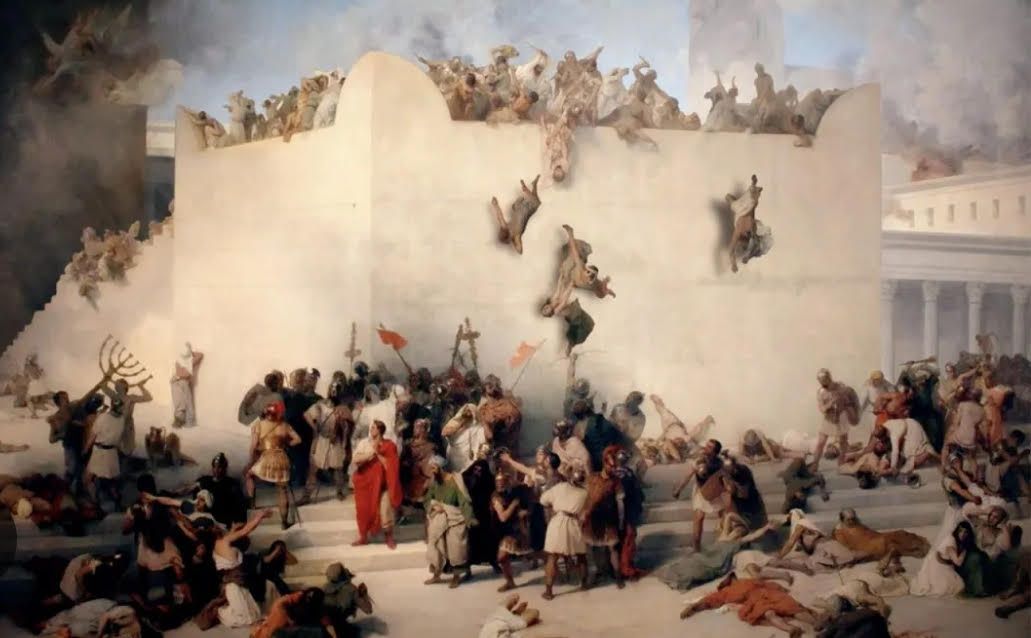33rd Sunday in Ordinary Time
November 14, 2025
Gospel Reflection
Luke 21:5-19

The year, as the Church measures it, is coming to an end,. Next Sunday we will celebrate the Feast of Christ the King, true ruler of the universe. A week later the season of Advent begins, the start of a new liturgical year. We will be invited to prepare for the celebration of the birth of Our Lord by living a time of special prayer and penance, somewhat similar to the season of Lent. We notice that the readings presently remind us that time is not limitless. Human history had a beginning and it will also have an end—the end of time. Sacred Scripture repeatedly refers to a day of judgement that marks this end point of history. God, who is the “sun of righteousness” will test the worth of men and women the way the sun tests objects of varying consistency. The sun may make stubble burst into flame, while at the same time give healing to wounded but living flesh. In the first reading, “the arrogant” and the “evil doers” are compared to stubble. They are the ones who have built on the “sand” of pride, of selfishness, of cruelty or indifference. They lack any real consistency. “Those who fear God” are the men and women who have tried to live with an openness to God and to others. They have taken God’s commandments to heart. They have shone gratitude and a sense of
responsibility. Though they may have made mistakes or weakened in resolve at times, they have turned to the Father for forgiveness and healing.
The Gospel captures Jesus’ sweeping view of the course of history from the time of his coming onwards. He did not hide from us that Christians would often face great opposition. This opposition could reach the extremes of violent persecution. We could say that Jesus prepared us for the worse, without meaning that such extremes would be the norm. When St. Paul wrote to the Christians living in Thessalonica, he had to correct their misguided view that the end of the world would surely happen very soon. Perhaps it was this sort of speculation that led many of them to be uninterested in doing much of use. Paul needed to shake off their lazy pessimism. They had missed the point of Jesus’ teaching, which was that we should be ready at all times precisely by being faithful to our duties. We should make good use of our time, having the attitude that each day is a new opportunity for doing something good. Living this way, we are always prepared to welcome Christ, or to deal with situations that may require a certain degree of heroism. Because we have sought and responded to God’s grace on a day-to-day basis, we are in the right frame of mind to respond to even greater grace.
St. Paul’s strong correction of some persons living in Thessalonica points to the worth of ordinary work in God’s plan. Those who are able to work ought to do so since honest work is also noble and beneficial both for oneself and for others. The deliberately idle person, on the other hand, is likely to end up being soft as a sponge, lacking resilience. Like a sponge, he or she is prone to draw to themselves many useless worries and ridiculous temptations. The
comparison with sponges can go one step further to remind us that lazy persons are more likely to be self-indulgent, taking in too much food, drink or sensual impressions.
Work should not be regarded as an unpleasant necessity to be disregarded at the first opportunity. Don’t forget that having nothing to do can end up being more consistently tedious than having too much to do. We were made to love and love shows itself in deeds!


